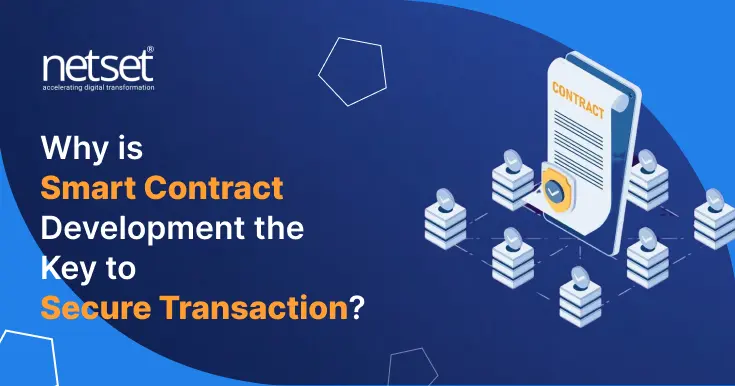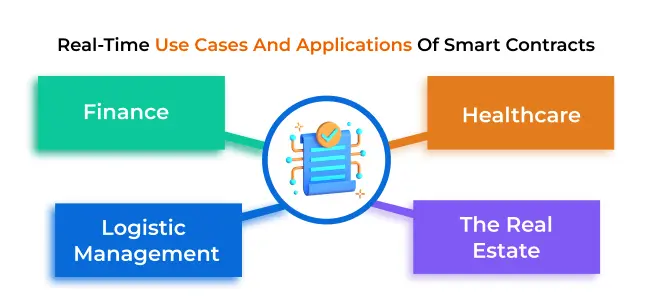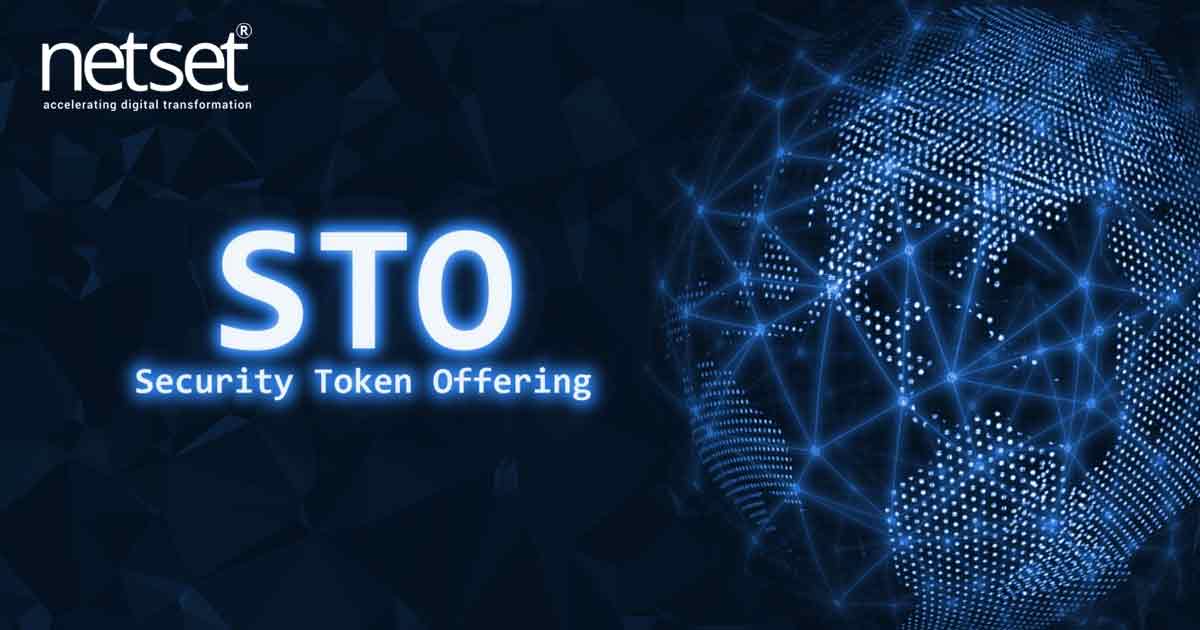Why is Smart Contract Development the Key to Secure Transactions?

Today’s digital age makes it essential to have secure transactions. Even though traditional methods work, they can often be costly, involve delays, and require intermediaries. Smart contracts allow for self-executing contract terms to be written directly into the code. These digital agreements are located on blockchain networks. They guarantee transparency, immutability, and security. The automation and precision provided by smart contracts eliminate the need to use intermediaries.
Smart contracts reduce human error while improving the speed and reliability of transactions. In this article we explore why smart contract development is essential for secure transactions. We will also examine smart contract benefits, applications, problems, and potential.
Understanding Smart Contracts In Detail
Nick Szabo first conceptualized the concept of smart contracts back in 1990. They are computer programs that enable, verify or enforce the negotiation and performance of contracts. They remove the need for third parties for verification or enforcement.
A smart contract consists of a code which defines the rules, penalties and conditions of an agreement. This contract enforces its obligations automatically. Once predefined conditions have been met, contracts are automatically executed.
As an example, in a rental agreement, the tenant’s payments could automatically release the keys digitally to the property. This level of automation makes sure that the agreement is carried out exactly as it was intended. This eliminates delays and misunderstandings. Some examples are the DeFi platforms. They use Smart Contracts to facilitate trading, borrowing, and lending without the need of traditional financial intermediaries.
Smart contracts run on blockchain networks. These are decentralized, distributed ledgers. Each transaction will be recorded into a separate block and then linked to its predecessor. It creates a chain that is both secure and unchangeable. Once a Smart Contract is implemented, it cannot change. It is a framework that ensures digital transactions are secure, reliable and unchangeable.
Exploring The Concept Of Smart Contracts and Secure Transactions
Smart contracts play an invaluable role in providing secure transactions. By automating processes, increasing accuracy, and decreasing human errors, smart contracts also offer transparency and trust between all parties involved as they allow all to see contract terms and execution details simultaneously. Their immutability ensures fixed terms that cannot be altered over time or voided by third-parties.
Automation & Accuracy:
Smart contracts execute transactions automatically when conditions meet. This minimizes human error while ensuring that the terms are correctly followed. Automation enhances accuracy while speeding up processes. It allows for a more reliable way to do business.
Smart contracts automate the settlement and payment of financial transactions. They ensure funds will only be transferred when all conditions have been met. This reduces the likelihood of errors by eliminating the need for manual checking. These errors might lead to disputes and financial losses.
Transparency in Trust:
Smart contracts operate on Blockchain networks. All parties can see terms and execution. Transparency is a key factor in building trust. Participants are able to verify the operation of the contract without relying solely on intermediaries.
Smart contracts can be used to track the progress of goods in the supply chain, from their production until delivery. Each transaction is transparently recorded and verifiable. This helps to reduce fraud. This helps ensure that products are genuine and that all parties involved can have trust in the process.
Secure and Immutable:
After deployment, smart contracts cannot change. This immutability guarantees that the terms are set and tamperproof. It offers a stable and reliable framework to conduct transactions. This characteristic is of particular value in sectors like real estate and finance. The integrity of the contract is vital in these areas.
Smart contracts for real estate can automate services such as property transfers and escrow. They ensure that all conditions must be met before a transaction can be completed. This reduces the fraud risk. It keeps a safe, verifiable log of all transactions and ownership.
Smart Contract Development: Its Benefits For Enterprises
Smart contracts offer numerous benefits that make them essential for secure transactions. They provide cost efficiency by eliminating intermediaries, speed up processes through automation, and ensure reliability and consistency in executing transactions. These advantages make smart contracts a valuable tool for various industries.
Cost Efficiency:
- Elimination of Intermediaries: Smart contracts remove the need for lawyers, brokers, and notaries, significantly cutting transaction costs.
- Savings on Administrative Expenses: By automating processes, businesses can reduce administrative overheads and fees associated with traditional contract management.
Speed and Efficiency:
- Instant Execution: Traditional contracts can take days or even weeks to process due to the involvement of multiple parties and steps. Smart contracts execute instantly once conditions are met, streamlining transactions and reducing delays.
- Automation of Processes: In industries like healthcare, smart contracts can automate tasks such as insurance claims processing, ensuring quick and accurate payments. This reduces administrative burdens and speeds up the reimbursement process, leading to better patient outcomes and lower costs.
Reliability and Consistency:
- Consistent Outcomes: Smart contracts ensure that the same conditions always lead to the same outcomes, reducing the risk of fraud and manipulation. This consistency builds trust and credibility in digital transactions.
- Automated Inventory Management: In supply chain management, smart contracts can automate inventory management and payments, ensuring timely payments to suppliers and accurate tracking of inventory levels. This reduces the risk of stockouts and overstocking, improving overall efficiency and reliability.
Real-Time Use Cases And Applications Of Smart Contracts

Smart contracts have a wide range of applications across various industries. They are revolutionizing financial services, supply chain management, real estate, and healthcare. Each of these sectors benefits from the automation, transparency, and security that smart contracts provide.
Finance:
Smart contracts are revolutionizing financial service. They automate transactions such as settlements and payments. DeFi platforms utilize smart contracts in order to create decentralized borrowing, trading, and lending systems. These work without traditional banks.
Platforms like Compound and Save for instance, use smart contract technology to facilitate peer to peer lending and borrowing. Users are able to earn interest or borrow funds directly from a bank without the need for a middleman. These platforms have a high level of transparency, are secure and efficient. These platforms provide a compelling alternative for traditional financial services.
Logistics Management:
The supply chain is managed by smart contracts, which track and check the movements of goods. They are a way to reduce the amount of counterfeiting. Automated payment and inventory processes are among the automated processes. It improves transparency and efficiency.
A smart contract could, for example, release payment automatically after the supplier has received and confirmed a shipment. This reduces the fraud risk, while ensuring timely payments. It improves the trust and cooperation between all parties in a supply chain.
The Real Estate:
Smart contracts simplify property transfers, escrow agreements and rental agreements. The need for intermediaries is reduced by automating the processes. Transactions are speeded up and costs are lowered.
A smart contract could, for example, automatically transfer ownership to a property after the payment of the buyer has been verified. This reduces the need for notaries or lawyers. Real estate transactions will be faster, cheaper, as well as more secure.
Healthcare:
Smart Contracts in Healthcare facilitate secure data sharing for patients and automate the insurance claim processing. The smart contracts are designed to ensure that sensitive data will be handled in a secure and efficient manner. Administrative burdens are also reduced.
A smart contract could, for example, verify and process insurance claims automatically. This will ensure that the patients receive reimbursements promptly. Workload for healthcare providers is reduced. Costs are reduced while the efficiency of healthcare providers is improved.
Challenges and Considerations When Investing In Smart Contract Development Services
Investment in smart contract development services provides many advantages while at the same time poses numerous challenges and considerations, which include technical, legal, and security-related considerations that must be carefully managed.
- Technical Complexity: The development of smart contracts requires special knowledge and skills. Due to the complexity in coding and implementation, developers need to test and audit contracts thoroughly to ensure that they work correctly and securely.
- Issues with Interoperability: Ensure smart contracts are compatible across blockchain platforms. Compatibility problems can arise and require additional integration and development efforts.
- Regulatory Incertitude: Legal status of smart contracts differs by jurisdiction. Businesses have to navigate a complicated and often undefined regulatory landscape. In some areas, smart contracts might not be legally enforced, causing uncertainty and risk.
- Vulnerabilities in Security: A poorly written code may be exploited. It is vital to use secure coding techniques and conduct thorough testing in order to minimize these risks. A single vulnerability could lead to financial losses or damage to reputation.
- Scalability: As transactions increase, the scalability issues of the blockchain network may become a problem. Businesses must consider the possible limitations of the smart contract platform they choose.
- High Initial Development Costs: The costs of developing and implementing intelligent contracts are high. Businesses must balance these costs with the potential savings and benefits over time.
Smart Contracts – The Future of Secure Transactions
The future of smart contracts looks promising with ongoing innovations and advancements. As technology evolves and regulatory frameworks become clearer, the adoption of smart contracts is expected to grow. This section explores the potential future developments and broader adoption of smart contracts.
Innovators and Advancements The integration of smart contracts with emerging technology promises to increase their functionality and scalability. It is important to use technologies like artificial intelligence and the Internet of Things. AI can help analyze contract data, and optimize performance. IoT gadgets can trigger smart contracts execution based on real-life events.
In the case of a shipping device, for example, an IoT could trigger smart contracts to release payment after the container reaches its destination. This ensures accurate and timely payments. Supply chain processes will be more efficient and reliable.
Increased Adoption of Smart Contracts: As regulations and technology advance, smart contracts are expected to become more popular. Smart contracts will be used increasingly by industries including finance and supply chain. Real estate and healthcare are also expected to benefit. This will improve the efficiency and transparency of transactions.
As more and more companies realize the value of smart contracts, it is likely that this technology will be adopted by a broader range of industries. It will also create new business opportunities for consumers as well as businesses.
Conclusion
Smart contracting is the key to ensuring secure transactions in an age of digitalization. They are more secure than traditional contract methods due to their transparency, automation and immutability. Despite their technical, security, legal, or other challenges, smart contracts have a number of benefits. They reduce costs and increase speed while increasing reliability.
Netset Software provides smart contract services. They can help businesses to navigate the complexity of implementing intelligent contracts. Secure and efficient digital transactions are ensured. Smart contracts will become increasingly important as technology progresses and adoption increases. Businesses should explore smart contract technology and invest to stay ahead of the curve in this ever-changing environment.
For those seeking to utilize this technology it is crucial to hire smart contract developers with expertise on platforms like Ethereum Smart Contracts or Cardano Smart Contracts. It is possible to get the support you need by working with a reputable developer of smart contracts. This will make it easier to implement secure, efficient and scalable solutions.




